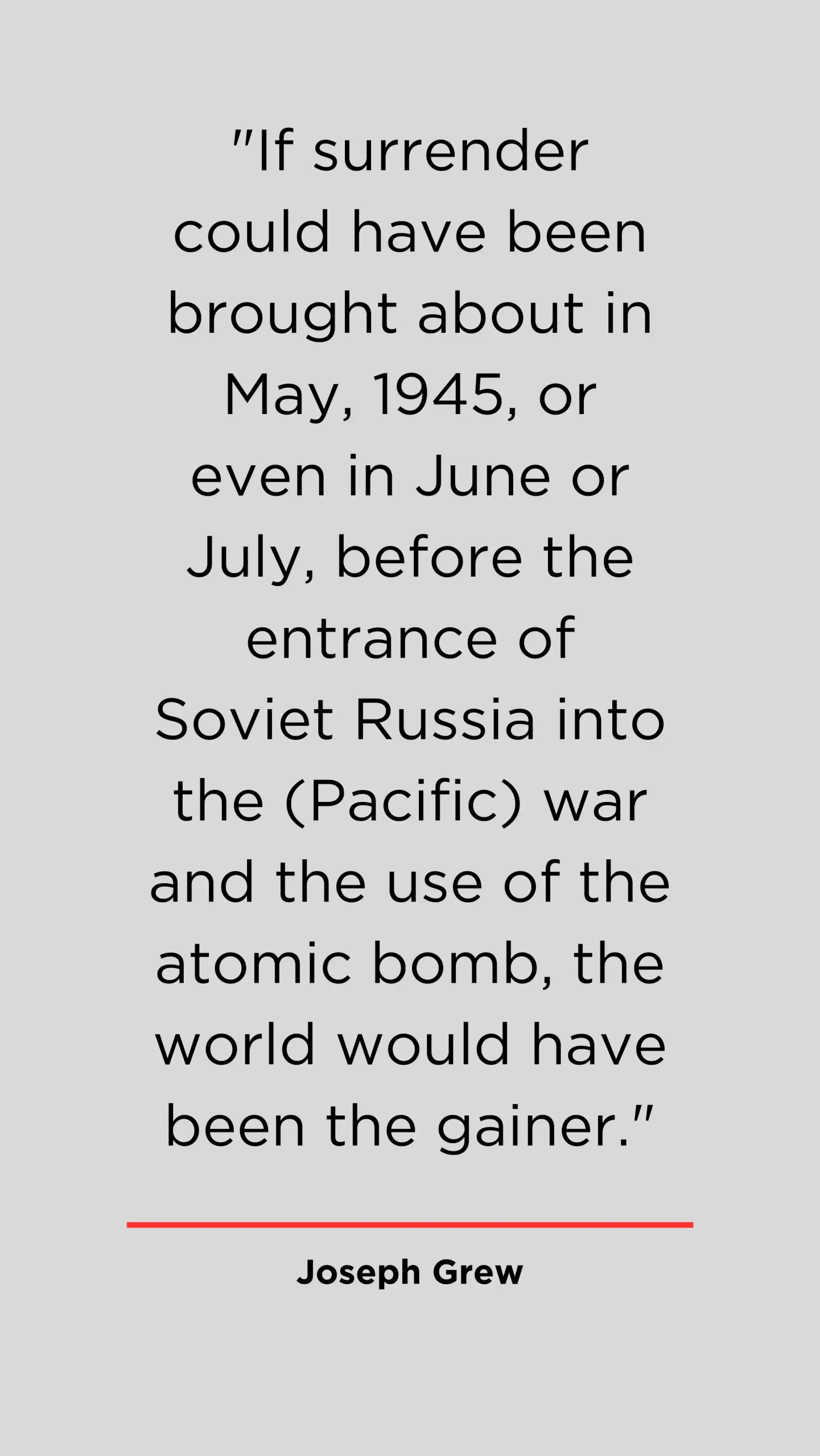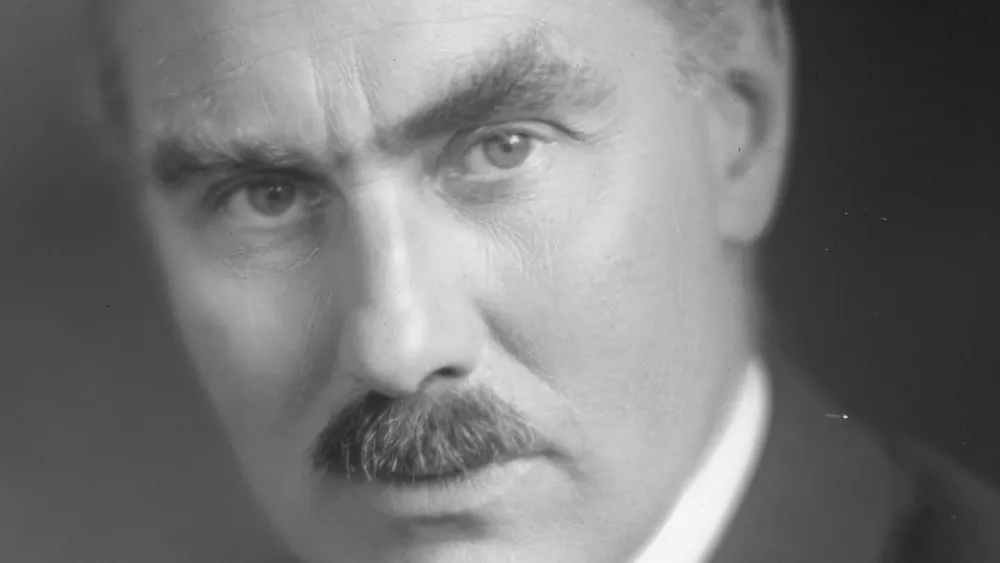The story of Joseph Grew highlights the crucial role that diplomats play in preventing conflicts, fostering alliances, and protecting their nation’s interests on the world stage. His commitment to diplomacy and his skillful navigation of international politics demonstrate that diplomacy is not merely a profession; it is a vocation dedicated to promoting global harmony and understanding.
Throughout his illustrious career, Joseph Grew was a living embodiment of the diplomat’s creed. The tireless pursuit of peaceful coexistence, the art of bridging cultural differences, and the dedication to the betterment of humanity.
Grew’s work represented a beacon of hope and a testament to the value of dialogue in resolving even the most complex international disputes.
The life and times of Joseph Grew remind us that diplomacy is not a solitary endeavor; it is a collaborative effort that demands keen intellect, cultural sensitivity, and the ability to maintain open lines of communication, even in the face of adversity.
The Diplomat’s Beginning: Joining the U.S. Diplomatic Service
On May 27, 1880, Joseph Clark Grew was born in Boston, Massachusetts. His family was well-known in New England and had a long history of serving the public. Grew attended prestigious schools like Groton School and Harvard University. It is where he developed strong communication and analytical skills. Therefore, it laid the groundwork for his future diplomatic career.
In 1904, Grew initiated his diplomatic career by enlisting in the U.S. diplomatic service. At the start of his distinguished diplomatic journey, he was initially stationed in Tokyo, Japan.
This would be the first of many postings. Grew’s work in Japan helped him gain a thorough understanding of the language, politics, and culture of the nation, which paved the way for his subsequent diplomatic achievements.
The American Ambassador Who Attempts to Stop Pearl Harbor
Ten years and 19 days had passed since the ambassador, Joseph Clark Grew, set foot in Japan on June 25, 1942. Grew was the State Department’s resident legend.
He had served in the foreign service for almost 40 years, holding 14 positions, including those in Cairo, Mexico City, St. Petersburg, Vienna, and Berlin, where he oversaw the closure of the U.S. He was a member of the Peace Commission to Versailles after serving as the U.S. Ambassador during World War I.
After serving in Washington, D.C., they appointed him as the ambassador to Denmark and Switzerland. He subsequently assumed the role of second in command at the State Department and returned to Washington. In 1927, they appointed him as the ambassador to Turkey, which presented a challenging diplomatic post.
The ambassador dutifully reported U.S. policy to the Japanese government despite his growing misgivings. However, following Pearl Harbor, he felt obliged to publicly express his opinions.
When he finished writing, he followed his usual practice with important dispatches, asking close subordinates in the embassy to critique them. All agreed with his assessment.

Joseph Grew: Impact on U.S.-Japan Relations
One of the most defining aspects of Joseph Grew’s diplomatic career was the era he served in. He was in the thick of it during some of the most critical moments of the 20th century, witnessing and participating in world-changing events. As World War I raged in Europe, Grew was stationed in Berlin.
He observed the conflict from the front lines of diplomacy. His experiences in Germany during this unruly period gave him valuable insights into the European political landscape.
Grew’s role in the Washington Naval Conference of 1921-1922 demonstrated his diplomatic acumen. This historic conference aimed to limit naval arms and promote peace, and Grew’s contributions were instrumental in its success.
Japan and China: Perhaps Grew’s most significant diplomatic work was in East Asia, particularly Japan and China. He served as the United States Ambassador to Japan from 1932 to 1941, a time when tensions between the two nations were rapidly escalating.
His diplomatic efforts played a crucial role in delaying Japan’s decision to attack the United States until 1941.
Joseph Grew: Advocating for Peace and Security
Joseph Grew’s commitment to diplomacy extended beyond the conclusion of World War II. In the aftermath of the conflict, he recognized the need for a new global order prioritizing cooperation and stability. Serving in the early years of the United Nations, Grew brought his wealth of diplomatic experience to bear on the challenges of the post-war world.
During his tenure at the United Nations, Grew tirelessly advocated for the principles of peace and security. He also promoted the rule of law as the foundation for international relations. He participated in crucial discussions and negotiations.
Helping to shape the organization’s role in promoting global harmony and preventing future conflicts. His efforts underscored the vital importance of diplomacy in maintaining a stable and just world order, even in the face of the profound changes brought about by World War II.
A Diplomatic Legacy: Navigating Uproar Times
Joseph Grew’s diplomatic career spanned some of the most unruly times in modern history, and his contributions were both far-reaching and instrumental. Moreover, his deep understanding of Japanese culture and politics leaves a mark on international relations.
Grew’s memoir, “Ten Years in Japan,” is a valuable resource for historians and diplomats, offering insights into the intricate world of diplomatic service during a time of global upheaval. It also provides a window into his deep respect for Japanese culture. Moreover, his sincere efforts to promote understanding between nations.
In recognition of his contributions, Joseph Grew was awarded the Medal for Merit by President Harry S. Truman in 1947, one of the highest civilian honors in the United States. His legacy endures as a testament to the power of diplomacy, even in the face of seemingly insurmountable challenges.
Joseph Grew: Diplomacy’s Timeless Relevance
Joseph Grew’s life and career serve as a poignant reminder of the ever-relevant role of diplomacy in a world marked by constant change. His remarkable ability to navigate the unpredictable tides of international relations, especially during the unruly early 20th century, is a testament to his unique blend of skill, dedication, and unwavering commitment to the cause of global peace.
In an era marked by global challenges, Joseph Grew’s enduring influence underscores the importance of dialogue, negotiation, and understanding. This is about resolving conflicts and forging a more peaceful and cooperative world.
His legacy is a beacon of hope. Illuminating the way for those who aspire to follow in the footsteps of this remarkable diplomat.










